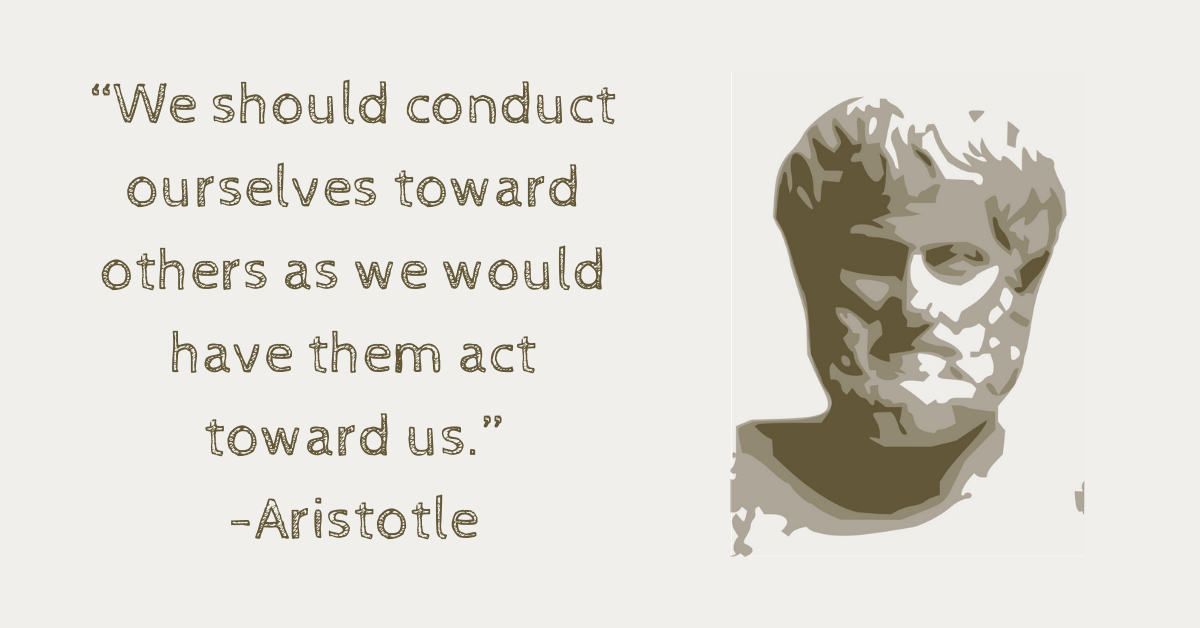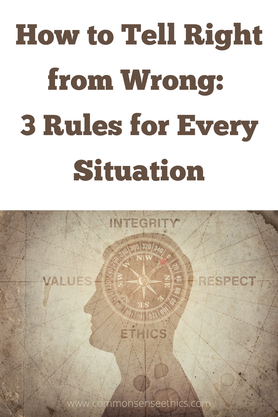It turns out that there are 3 important rules we can always use to do right by others: the Silver Rule, the Golden Rule and the Platinum Rule. These 3 rules are applicable regardless of our politics, religion or culture. These moral rules also have broad support across cultures and throughout history. Let's discuss the Silver, Golden, and Platinum Rules, and how they can easily be applied to tell right from wrong when it comes to our choices and actions.
The Silver Rule
The Silver Rule dates back to antiquity and variations of it can be found in Hindu, Buddhist, and other religious texts. The Silver Rules also appears in the writings of the Stoic philosopher Epictetus from around 150CE. He writes: “What you shun enduring yourself, attempt not to impose on others.” [1] Thomas Hobbes, writing in the 17th Century, also described the Silver Rule in his book Leviathan: "Do not that to another, which thou wouldst not have done to thy selfe." [2]
To use the Silver Rule, we must consider whether we are doing something that we would not want done to us. For example, if we would not enjoy being harmed or defrauded in some way, we should not do anything that harms or defrauds others. We should not take any actions that we wouldn't like to be on the receiving end of if the roles were reversed. This seems pretty straightforward.
The Silver Rule is important for being able to tell right from wrong, since applying it forces us to consider the potential consequences of our actions from someone else's point of view.
On its own however, the Silver Rule is less powerful than the Golden Rule because it only forces us to consider our actions, but not our inaction, which can also sometimes be potentially harmful. For example, if we fail to protect someone who is being attacked, or we refuse to speak up about something that we feel to be wrong.
The Golden Rule
“We should conduct ourselves toward others as we would have them act toward us.” -- Aristotle, Greece (circa 350 BC)
“No one of you is a believer until he desires for his brother that which he desires for himself.” (Islam) [3]
The Golden Rule boils down to treating other people the way that we would like to be treated. This includes not only refraining from harmful actions as with the Silver Rule, but also helping others who need it (in a situation when we would like to be helped if the roles were reversed). This where the Golden Rule transcends the Silver Rule in terms of applicability. It is simple and powerful.
The Golden Rule is great for telling right from wrong, but a dilemma can present itself if other people do not always want us to treat them the same way as we would like to be treated. If we refine the Golden Rule even further, we get a third and even more powerful moral concept, the Platinum Rule.
The Platinum Rule
Although he does not call it the Platinum Rule, extensive support for this same principle can be found in the book The Zombies: On Morality, by Josh Bachyinski. [4]
The Platinum Rule is about maximizing what is good and ideal for each person. For example, if a vegetarian guest is coming to dinner at our house, we should serve them meatless fare because that is what they would want. If we apply only the Golden Rule to this situation, we might end up serving our vegetarian guest steak because we would want steak served to us. We fail to consider their needs even though our intentions are good.
The Platinum Rule is even more powerful than the Silver and Golden Rules because it forces us to actually find out how someone else wants to be treated in reality, not just based on our assumptions, even if we have the best intentions.
Putting It All Together
1.) Would I not want this done to me? (Silver Rule)
2.) Would I like to be treated this way? (Golden Rule)
3.) How would this person ideally want to be treated? (Platinum Rule)
By applying the Silver, Golden and Platinum Rules, it should now be easy to figure out if an action is right or wrong in just about every situation we may encounter in everyday life.
~
References:
1.https://effectiviology.com/golden-rule/
2.https://medium.com/@linkdaniel/leviathan-an-introduction-to-thomas-hobbes-33029a500957
3.https://effectiviology.com/golden-rule/
4 .http://www.thezombiesbook.com/
*Originally published Nov. 2013, revised March 2021
You may also like these Posts:
The Most Powerful Tool For Living Your Best Life
The Philosophy That Could Save Humanity
4 Big Mistakes That Ruin Your Character











